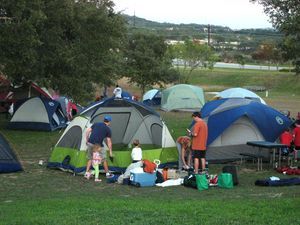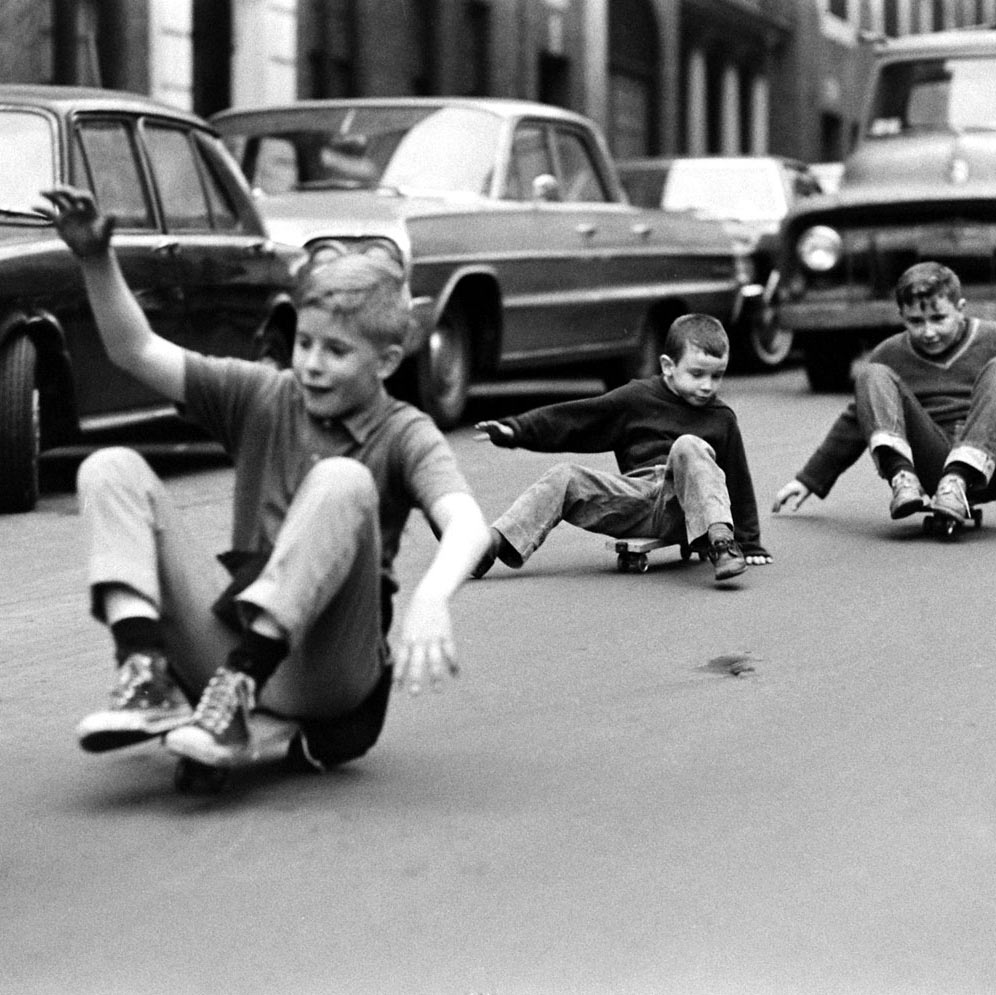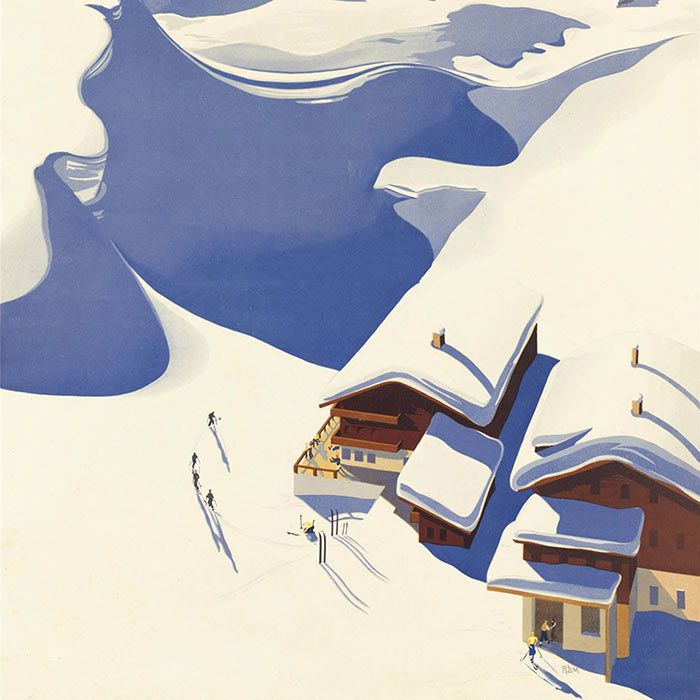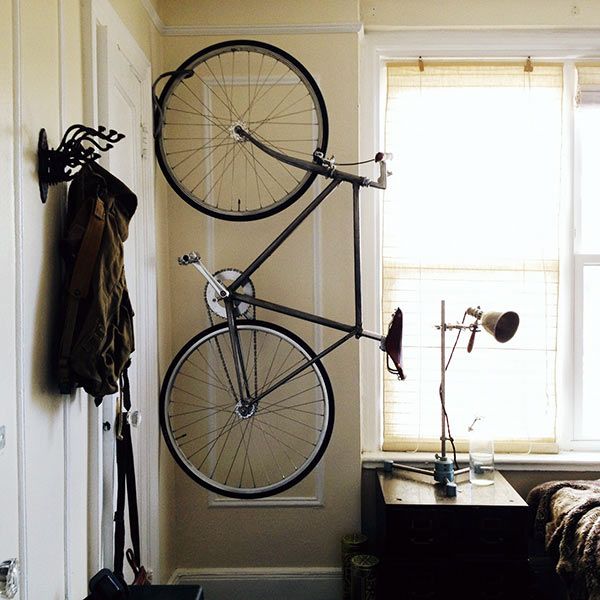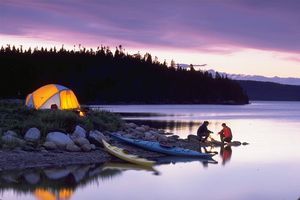 For those who enjoy traveling in their own car, campsites have been created. Camping, translated from English, means living in a tent (from “camp” - tent).
For those who enjoy traveling in their own car, campsites have been created. Camping, translated from English, means living in a tent (from “camp” - tent).
Many have heard of it but have only a general understanding. This is because in Russia and CIS countries, tourism involving camping is just starting to gain traction. The trend came to us from Europe and America, where it is well developed. Naturally, conditions in these campsites differ significantly.
In our local campsites, it’s most common to find only a plotted piece of land, somewhat guarded. As for amenities—at best, there may be electricity and drinking water.
However, many entrepreneurs have a good commercial sense and understand that this sector has great potential. Increasingly, they are buying and upgrading campsites. Yet, they still have a long way to go to reach European standards.
If camping out in nature under Spartan conditions doesn’t bother you, it’s a great way to spend your vacation and discover something new.
Tourists who are used to a certain level of comfort often choose European countries instead.
In the Russian language, the term “camping” has also acquired another meaning. It’s used to refer to a car trailer, or the so-called “mobile home.”
What to Bring with You
The items you take on your camping trip should meet two main criteria: they must be lightweight and take up as little space as possible. Consequently, many manufacturers create special camping furniture. This usually includes folding tables and chairs of various configurations. Sometimes, there are additional niche items like folding travel cupboards. Most campsites lack strong lighting, so it is a good idea to bring a flashlight and glow sticks designed for camping.
Additionally, for staying overnight in nature, you will need a sleeping bag. How to choose a sleeping bag and what to look for when purchasing one.
Russia’s largest and oldest ski resort is Dombay. Read our account of how ski enthusiasts spend their vacations there.
Russian Campsites
The principle of camping is based on self-service. This means you are provided with a spot and various services, but no one will monitor your actions. A prime example of this concept is the campsites at music festivals or those used by athletes traveling for training.
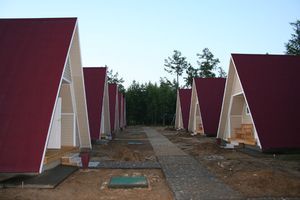 Typically, it looks like this: A small or large plot of land (depending on the number of people) is fenced off with a plastic barrier. Inside are several wooden cabins with two bunks each. Between the cabins, there are bio-toilets. Beyond the cabins lies the dining area. Tourists love campsites because they offer a simple and inexpensive way to relax in nature. Athletes also enjoy this type of living arrangement during training since all activities are held near the camp, leaving no need to travel anywhere.
Typically, it looks like this: A small or large plot of land (depending on the number of people) is fenced off with a plastic barrier. Inside are several wooden cabins with two bunks each. Between the cabins, there are bio-toilets. Beyond the cabins lies the dining area. Tourists love campsites because they offer a simple and inexpensive way to relax in nature. Athletes also enjoy this type of living arrangement during training since all activities are held near the camp, leaving no need to travel anywhere.
As for the prevalence of camping in Russia and abroad, this type of tourism is becoming increasingly popular. Evidence of this can be seen in the growing number of campsites across the country. Campsites are being opened even for general travelers. There are campsites within every major city, not to mention the suburbs. In Moscow alone, there are over 50 campsites where travelers can stay, whether in a mobile home or without one.
Major companies profit well from campsites. By sponsoring specific events, they can easily afford to open paid campsites on the event grounds. Just picture it: Take any music festival, theatrical festival, or sports event, for example. Each of these hosts its own campsite nearby. The cost of a single night ranges on average from 200 to 5,000 rubles, depending on the type of accommodation.
Check out the top 5 best surfing movies on our website.
Parkour is a relatively young type of extreme sport. Learn what you’ll need to start learning parkour.
What to do if your GPS runs out of battery? Use a compass! Learn how to navigate terrain using a compass .
Abroad
In Europe, camping has also become a common practice. In any country with even a modestly developed tourism industry, there are bound to be campgrounds. In some places, it is considered a family-friendly way to spend leisure time. For example, in the United States, campgrounds are widespread. There, every second family, regardless of the season, takes trips into nature in their own motorhomes and stays in popular campgrounds where they meet fellow “travelers.” Asking “What is camping?” would almost be considered an insult.
There are even special camping associations and organizations dedicated solely to them. In fact, camping has become a widespread phenomenon and a very convenient way to enjoy nature. Athletes, incidentally, also take full advantage of this form of tourism. Climbers, cyclists, divers—many choose this method of staying in the right location. This method is preferred over the traditional “three tents and a single campfire.”
